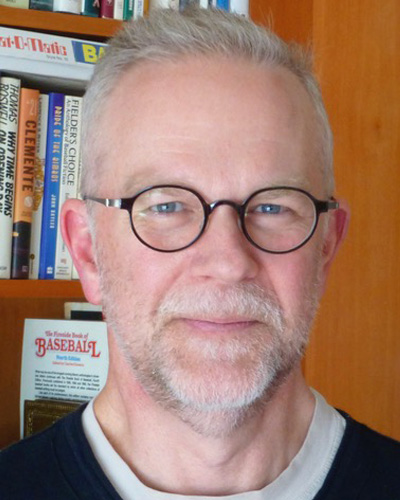Research Interests
- Cultural Studies
- Curriculum Studies
- Curriculum Studies Research
- Curriculum theory
- Democracy and Citizenship
- Higher Education
- Media
- Semiotics
- Text Studies
- Multiculturalism
- Pedagogy
- Policy Studies Social Studies Education Research
- Sociological Issues
- Teacher Education Research
- Critical Pedagogy
Education
The Ohio State University, PhD
University of North Carolina at Chapel Hill, ABEd, MAT
Biography
Dr. Ross is a social studies educator with interests in the influence of social and institutional contexts on teachers’ work as well as the role of curriculum and teaching in building a democratic society.
In recent years, he has examined the influence of neoliberalism and the global education reform movement on curriculum and teaching in an effort to develop both a radical critique capitalist schooling and means by which teachers, students, and other stakeholders might resist its conforming, anti-democratic, anti-collective, and oppressive potentialities.
Dr. Ross has written and edited more than 25 books on social studies, critical pedagogy, and social justice education, including The Social Studies Curriculum: Purposes, Problems and Possibilities (SUNY Press), Social Studies Education in Latin America, with Sebastián Plá (Routledge), and Rethinking Social Studies: Critical Pedagogy and the Pursuit of Dangerous Citizenship (Information Age Press). Four of his books have won the Critics Choice Book Award from American Education Studies Association.
His articles have appeared in Theory & Research in Social Education; Review of Education, Pedagogy, and Cultural Studies; Journal for Critical Educational Policy Studies; Educational Studies; Journal of Teacher Education; Works & Days and many others.
In addition to his scholarly work, Dr. Ross has written extensively for newspapers and magazines on education and social issues and has contributed to radio and television outlets across Canada, United States, and Europe. His education activism includes playing a key role in the creation of The Rouge Forum, a group of educators, parents, and students working a democratic society through dialogue and direct action.
Dr. Ross is co-founder and co-director of the Institute for Critical Education Studies and is the lead editor of the Institute’s flagship, open access journals Critical Education and Workplace: A Journal for Academic Labor.
He is also a co-editor of Cultural Logic, which has been on-line since 1997, and is an open access, peer-reviewed, interdisciplinary journal publishing essays, interviews, poetry, and reviews by writers working within the Marxist tradition.
A former secondary social studies (Grades 8 to 12) and day care teacher in North Carolina and Georgia, Dr. Ross was Distinguished University Scholar and Chair of the Department of Teaching and Learning at the University of Louisville prior to his arrival at UBC in 2004. He has also taught at the State University of New York at Albany and Binghamton University, SUNY.
Find Dr. Ross on the interwebs:
Institute for Critical Education Studies
Where the Blog Has No Name
Workplace Blog
Follow @EWayneRoss
Invited Presentations
Academic Conferences & Presentations (Recent)
Critical social education: Insurgent pedagogies & dangerous citizenship. Education and Childhood Research Group, University of the West of England, Bristol. October 1, 2024.
Society, democracy, and economics: Challenges for social studies and citizenship education in a neoliberal world. Reading Group of School of Education and Childhood, University of the West of England, Bristol. October 1, 2024.
Creating narratives of social justice in education. Keynote address at 11th Education Graduate Students (EGS) Conference – Weaving Stories, Creating New Realities for Empowerment and Resilience. Department of Curriculum & Pedagogy, University of British Columbia, Vancouver, March 15, 2024.
Conversatorio ¿Qué Ciudadanía?, ¿Qué Ciudadanos y Ciudadanas?, ¿Qué Desafíos? Panel presentation with Carolina Chávez Preisler, David Aceituno Silva, and Carlos Múñoz Labraña at XVIII Seminario de Didactica de la Historia y las Ciencias Sociales, Institute of History, Pontifical Catholic University of Valparaiso (Chile), November 10, 2023.
Conceputalizing social justice. Workshop with REDIECS at XVIII Seminario de Didactica de la Historia y las Ciencias Sociales, Institute of History, Pontifical Catholic University of Valparaiso (Chile), November 9, 2023.
What does it mean to teach for democracy? Reckoning with history and memory of the 1973 Coup d’état in Chile. Keynote address at XVIII Seminario de Didactica de la Historia y las Ciencias Sociales, Institute of History, Pontifical Catholic University of Valparaiso (Chile), November 8, 2023.
Teachers, curriculum, and ideology. Workshop as part of VIII Symposium on Social Studies and Civic Education and III Congress of the Central American Network for Research and Teaching in Social Studies and Critical Citizenship, Escuela de Historia, Universidad Nacional Costa Rica, Red Centroamericana de Investigación y Docencia en Estudios Sociales y Ciudadania Crítica [Central American Research and Teaching Network in Social Studies and Critical Citizenship], November 3, 2023.
Educating for citizenship and social justice. Workshop as part of VIII Symposium on Social Studies and Civic Education and III Congress of the Central American Network for Research and Teaching in Social Studies and Critical Citizenship, Escuela de Historia, Universidad Nacional Costa Rica, Red Centroamericana de Investigación y Docencia en Estudios Sociales y Ciudadania Crítica [Central American Research and Teaching Network in Social Studies and Critical Citizenship], November 2, 2023.
Thinking critically about democracy and its decline. Keynote address at VIII Symposium on Social Studies and Civic Education and III Congress of the Central American Network for Research and Teaching in Social Studies and Critical Citizenship, Escuela de Historia, Universidad Nacional Costa Rica, Red Centroamericana de Investigación y Docencia en Estudios Sociales y Ciudadania Crítica [Central American Research and Teaching Network in Social Studies and Critical Citizenship], November 1, 2023.
Critical pedagogy, dialectics, and social studies education. Workshop at University of Costa Rica-San Ramón, October 31, 2023.
Scholactivism and resisting G.E.R.M. (global education reform movement). Public Conversations About Privatization: Rejecting the Marketization of Public-School Systems in Canada. Ontario Institute for Studies in Education / University of Toronto. May 26-27, 2023.
Teaching, curriculum, and ideology in social studies education. Institute of History, Pontifical Catholic University of Valparaiso (Chile). April 14, 2023.
The challenges and critical possibilities for history education in the neoliberal era. Keynote address at XIII Encontro Nacional de Pesquisadores em Ensino de História (XIII ENPEH), promovido pelo Associação de Ensino de História (ABEH) [XIII National Meeting of Researchers in History Teaching, sponsored by the Brazilian Association of History Teaching (ABEH)], Recife, Brazil, November 9, 2022. https://www.enpeh2022.abeh.org.br/site/capa
Social studies and dangerous citizenship: Images and interventions as pedagogical imaginaries. Keynote address at II Jornadas de Investigación en Estudios Sociales y Educación Cívica, Universidad Nacional of Costa Rica, June 10, 2022.
Images and interventions as pedagogical imaginaries: Creative disruption of classroom life. INEDA | Repensar la formación docente a través de la innovación educativa para una era post-pandemia [Rethinking teacher training through educational innovation for a post-pandemic era]. University of Seville, Spain, March 2, 2022.
Democracy, populism and critical citizenship education in a neoliberal world. V Seminar on Teaching and Learning: Contributions of Interdisciplinary Education for Times of Change. University of Santiago, Chile. January 5, 2022.
Society, democracy, and economics: Challenges for social studies and citizenship education in a neoliberal world. Keynote speaker Gesellschaft für Sozioökonomische Bildung und Wissenschaft / Association for Socio-Economic Education and Research, University of Education Vienna, Austria, February 19-21, 2020.
Humanizing critical pedagogy. Plenary speaker at VIII International Conference on Critical Education, University of East London, London, UK, July 26, 2018.
What teachers? What citizenship? What future? The challenges of teaching social sciences, geography, and history. Keynote address at XV Jornades Internacionals de Recerca en Didàctica de les Ciències Socials (XV International Conference on the Research of Teaching Social Sciences), Autonomous University of Barcelona, Catalonia, Spain. February 8, 2018.
Social studies and citizenship education in a neoliberal world. Keynote address at II Jornadas de Investigación en Estudios Sociales y Educación Cívica, Universidad Nacional of Costa Rica, June 10, 2022.
Images and interventions as pedagogical imaginaries: Creative disruption of classroom life. INEDA | Repensar la formación docente a través de la innovación educativa para una era post-pandemia [Rethinking teacher training through educational innovation for a post-pandemic era]. University of Seville, Spain, March 2, 2022.
Democracy, populism and critical citizenship education in a neoliberal world. V Seminar on Teaching and Learning: Contributions of Interdisciplinary Education for Times of Change. University of Santiago, Chile. January 5, 2022.
Society, democracy, and economics: Challenges for social studies and citizenship education in a neoliberal world. Keynote speaker Gesellschaft für Sozioökonomische Bildung und Wissenschaft / Association for Socio-Economic Education and Research, University of Education Vienna, Austria, February 19-21, 2020.
Humanizing critical pedagogy. Plenary speaker at VIII International Conference on Critical Education, University of East London, London, UK, July 26, 2018.
What teachers? What citizenship? What future? The challenges of teaching social sciences, geography, and history. Keynote address at XV Jornades Internacionals de Recerca en Didàctica de les Ciències Socials (XV International Conference on the Research of Teaching Social Sciences), Autonomous University of Barcelona, Catalonia, Spain. February 8, 2018.
Recent Media/News Appearances (Recent)
Brazilian Association of History Teaching / Associação de Ensino de História – ABEH (July 2024). Neoliberalismo e ensino de História. https://www.youtube.com/watch?v=pSfzXTSdnGg
Public Good with Shannon Moore & Stephen Hurley (September 22, 2023). Podcast on VoiceEd Radio. Public conversations about privatization of education. https://voiced.ca/podcast_episode_post/special-series-e3-public-conversations-about-privatization-resistance/
Documento (June 6-7, 2020). Μπορούμε να πάρουμε μαθήματα από τους δρόμους [We can learn lessons from the streets], p. 37. http://blogs.ubc.ca/ross/2020/06/can-we-take-lessons-from-the-streets-interview-with-documento-athens-greece-on-uprisings-in-the-usa/
Globe and Mail (March 20, 2020). Interviewed Caroline Alphonso and quoted on issue of teaching children at home during the COVID-19 pandemic. “What does school look like without the classroom?” https://www.theglobeandmail.com/canada/article-what-does-school-look-like-without-the-classroom/
CBC News (September 1, 2019). Interviewed and quoted regarded alternative and democratic schools aims and history by reporter Maryse Zeidler, “No grades, no curriculum: Parents lobby for ‘democratic’ school in Vancouver.” https://www.cbc.ca/news/canada/british-columbia/vancouver-school-board-democratic-school-1.5265188
The Atlantic (October 27, 2018). To prevent loneliness, start in the classroom. Ashley Fetters quotes my work on teaching history and civics from multiple perspectives to foster empathy and quell alienation among diverse groups of students. https://www.theatlantic.com/education/archive/2018/10/loneliness-prevention-schools/573280/
Globe and Mail (March 20, 2020). Interviewed and quoted on issue of teaching children at home during the COV19 pandemic by Caroline Alphonso, “What does school look like without the classroom?” .
The Atlantic (October 27, 2018). To prevent loneliness, start in the classroom. Ashley Fetters quotes my work on teaching history and civics from multiple perspectives to foster empathy and quell alienation among diverse groups of students.
CBC News (September 1, 2019). Interviewed and quoted regarded alternative and democratic schools aims and history by reporter Maryse Zeidler, “No grades, no curriculum: Parents lobby for ‘democratic’ school in Vancouver.”
Ross, E. W. (2018, September 23). Are private schools better than public schools? Perception versus reality. Times-Colonist (Victoria, BC). Retrieved from https://www.timescolonist.com/opinion/op-ed/comment-are-private-schools-better-than-public-schools-perception-versus-reality-1.23439962
Selected Publications
Many of my books and articles are available at: Academia.edu and ResearchGate
Recent Books
Ross, E. W. (Ed.). (2024). The social studies curriculum: Purposes, problems and possibilities (5th Ed.). SUNY Press. https://sunypress.edu/Books/T/The-Social-Studies-Curriculum-Fifth-Edition
Recent Articles & Book Chapters:
Ross, E. W., Cerri, L. F., Lima, M. A., & Andrade, J. (2025). Interview with Professor E. Wayne Ross. Revista Docentes , 10 (35), 99-111. https://periodicos.seduc.ce.gov.br/revistadocentes/article/view/1474
Ross, E. W. (2025). The illusions of democracy. In R. Case & P. Clark (Eds.). Learning to inquire in history, geography, and social studies: An anthology for secondary teachers (5th Ed., pp. 118-123). Critical Thinking Consortium.
Navarro Medina, E , Ross, E. W., Pérez-Rodríguez, N., & De Alba Fernandez, N. (2025). Towards an ideal model of education for critical citizenship. An analysis of the Spanish curricular change in social sciences. European Journal of Education, 60(1), e70010. https://doi.org/10.1111/ejed.70010
Granados Gamboa, K., Granados Trejos, A., & Rodriguez Viquez, L. P. (2024). La pedagogía crítica no es una receta: Estrategias, desafíos y aportes en la enseñanza de los Estudios Sociales. Entrevista con el Dr. E. Wayne Ross. Revista Perspectivas: Estudios Sociales y Educación Cívica, 29, 1-17. https://www.revistas.una.ac.cr/index.php/perspectivas/article/view/20334
Ross, E. W. (2024). Imagining possible futures in social studies education and beyond. In B. A. Varga & E. C. Adams (Eds.), The theory-story reader for social studies (pp. 216-222). Teachers College Press.
Ross, E. W. (2024). Desafios e possibilidades para a educação histórica em um mundo neoliberal. In L. F. Cerri & Juliana A. (Eds.), Os presentes do Ensino de História: (re)construções em novas bases (pp. 13-32). ABEH–Associação Brasileira de Ensino História.
Plá, S., & Ross, E. W. (2023). The new social studies research in Latin America: An introduction. In S. Plá & E. W. Ross (Eds.). Social studies education in Latin America: Critical perspectives from the Global South (pp. 1-19). Routledge.
Mathison, S., & Ross, E. W. (2022). Critical education. In A. Maisuria (Ed.), Encyclopaedia of Marxism and education (pp. 129-146). Brill.
Ross, E. W. (2022). A Crisis within a crisis: Teaching, learning, and democracy under neoliberalism during the pandemic. In F. Mizikaci & E. Ata (Eds.). Critical pedagogy and the Covid-19 pandemic: Keeping communities together in the times of crisis. (pp. 91-109). Bloomsbury.
Mathison, S., & Ross. E. W. (2022). Beyond education as usual: Public education in a post-Covid world. In D. Selwyn (Ed.). At the center of all possibilities: Transforming education for our children’s future (pp. 37-43). Peter Lang.
Ross, E. W. (2022). Insurgent pedagogy and dangerous citizenship. In N. Merchant, S. Shear, & W. Au (Eds.), Insurgent social studies: Scholar-educators disrupting reassure and marginality (pp. 207-212). Myers Education Press.
Ross, E. W. (2022). Meditative inquiry and reimagining critical education. In A. Kumar (Ed.), Engaging with meditative inquiry in teaching, learning, and research: Realizing transformative potentials in diverse contexts (pp. 263-268). Routledge.
Ross, E. W. (2021). Society, democracy, and economics: Challenges for social studies and citizenship education in a neoliberal world. In F. Christian, U. Hagedorn, R. Hedtke, P. Mittnik, & G. Tafner, Georg (Eds.), Wirtschaft, gesellschaf und politick: Sozioökonomische und politische bildung in schule und hochschule (pp. 33-51). Springer VS. https://doi.org/10.1007/978-3-658-32910-5_3
Ross, E. W. (2020). Why are things as they are? Action research and the transformation of work and education in the neoliberal age. Canadian Journal of Action Research, 21(1), 10-26. https://journals.nipissingu.ca/index.php/cjar/article/view/515
Ross, E. W. (2020). Humanización de la pedagogía crítica: ¿Qué clase de profesores? ¿Qué clase de ciudadanía? ¿Qué clase de futuro? (Sonia Bazán, Trans.). Revista de Educación, 21(1), 17-37. Retrieved from http://fh.mdp.edu.ar/revistas/index.php/r_educ/issue/view/224/showToc
Ross, E. W. (2020). History and social studies curriculum. In Oxford research encyclopedia of education. Oxford University Press. doi: https://doi.org/10.1093/acrefore/9780190264093.013.1062
Ross, E. W. (2018). Humanizing critical pedagogy: What kind of teachers? What kind of citizenship? What kind of future? Review of Education, Pedagogy, and Cultural Studies, 40(5), 371-389. DOI: 10.1080/10714413.2019.1570792
Sant, E., Lewis, S., Delgado, S., & Ross, E. W., (2018). Justice and global citizenship education. In I. Davies (Ed.), The Palgrave handbook of global citizenship and education (pp. 227-243). Palgrave.
Courses Taught
EDCP 333 – Curriculum Issues in Social Studies Education
This course is based on the premise that good social studies teaching and learning requires teachers and students to pose and analyze problems in the process of understanding and transforming our world. In other words, social studies education should not be about passively absorbing someone else’s conception of the world, but rather it should be an exercise in creating a personally meaningful understanding of the way the world is and how one might act to transform it. To that end, this course focuses six key topics in the social studies curriculum: democracy and citizenship; race; First Nations/aboriginal peoples; social class; gender and sexuality; and globalization.
EDUC 500 – Research Methodology in Education
An introduction to educational and social research for practitioners in schools and human services. The focus will be on fundamental issues in research including research methodology and research techniques (e.g., data collection, analysis and interpretation). This is not a research design or statistics course. In this course we will focus on: (a) developing an understanding of various kinds of educational and social research; (b) developing skills that will facilitate critical reading of educational and social research; and (c) exploring the role and use of research techniques to reflect upon and improve practice.
EDCP 508 (032) – History, Theories, and Practices of Alternative Education
Since the 1980s, schools have been subjected to increased standardization, test-based accountability, and corporate management models, trends often labeled as the global education reform movement or GERM. One of the key effects of GERM on curriculum and teaching has been the search for low-risk ways to meet learning goals, undermining alternative and experimental pedagogical approaches and risk-taking in the classroom. This seminar will explore histories, ideologies, and practices of alternative education movements. A key aim of the course is to examine the various cultures of learning, teaching, and curriculum embedded within the diverse landscape of alternative education and the implications for formal and informal education today. Emphasis will be placed on (but not limited too) the liberal/progressive and anarchist/libertarian traditions of alternative education, including movements such as democratic free schools, unschooling/deschooling, as well as Socialist Sunday Schools, Modern Schools (Ferrer Schools).
EDCP 562 – Introduction to Curriculum Studies
History and development of the curriculum emphasizing the underlying perspectives that inform curricular choices and activities; principles and issues related to organization, development and evaluation.
EDCP 564 – Texts, Politics, and Ideologies of Curriculum Development
This course examines the content and ideology of school curriculum, both past and present, within the Canadian context and beyond. The course also includes analyses of political and economic influences on curriculum, materials development, and related discourses.
EDCP 568 – Curricula in their Historical Context
This course focuses on curriculum history, politics, and theory with specific reference to the scholarship in curriculum studies and related fields. The course examines influences upon, and prominent themes, issues and trends within, the history of the school curriculum in North America and beyond. Students will acquire familiarity with the work of some of the principal scholars conducting research in this area. They will have the opportunity to conduct their own original research using primary and secondary source materials, in order to investigate questions related to a school subject or other topic in which they are interested, and to situate this topic within the wider context of the history of curriculum.
EDCP 601 – Curriculum and Pedagogy: History and Theory
This seminar is intended for first-year doctoral students. It examines the emergence of contemporary conceptions of curriculum and pedagogy, looking across various historical and theoretical influences. Emphasis is placed on analysis of varied conceptual and political perspectives, explicit and tacit rationales for formal education, and consequent principles that infuse conceptions and enactments of curriculum and pedagogy.
EDCP 602 – Curriculum and Pedagogy: Conceptualizing Research
This seminar is intended for first-year doctoral students. It unpacks the epistemological and ontological positions of various paradigms used in contemporary social research, particularly studies of curriculum and pedagogy. The principle aim of the course is to examine how we conceptualize research. Various theoretical perspectives will be examined including: positivism, constructionism, interpretivism, and critical inquiry. The guiding questions for the course are: What methods do we propose to use? What methodology governs our choice and use of methods? What theoretical perspective lies behind the methodology in question? What epistemology informs this theoretical perspective?





